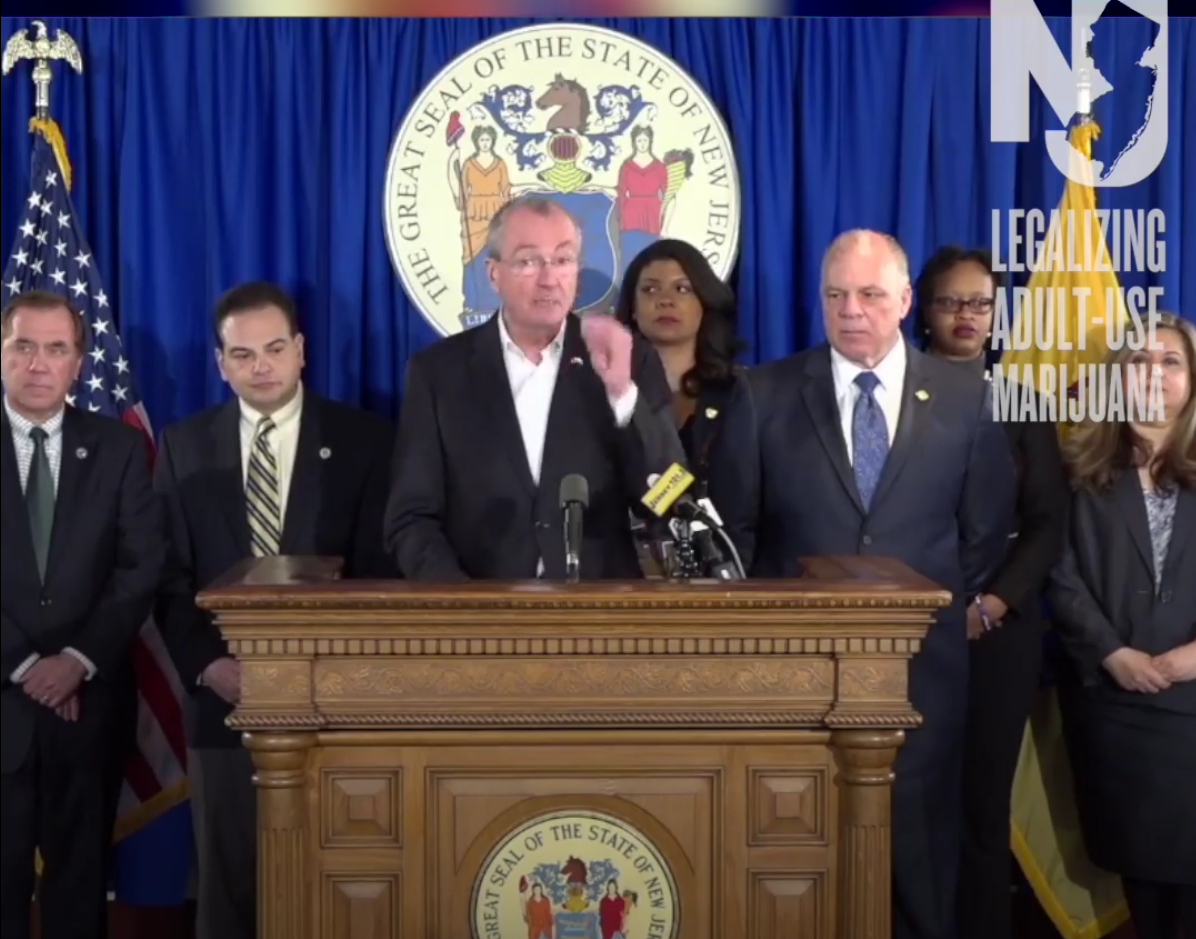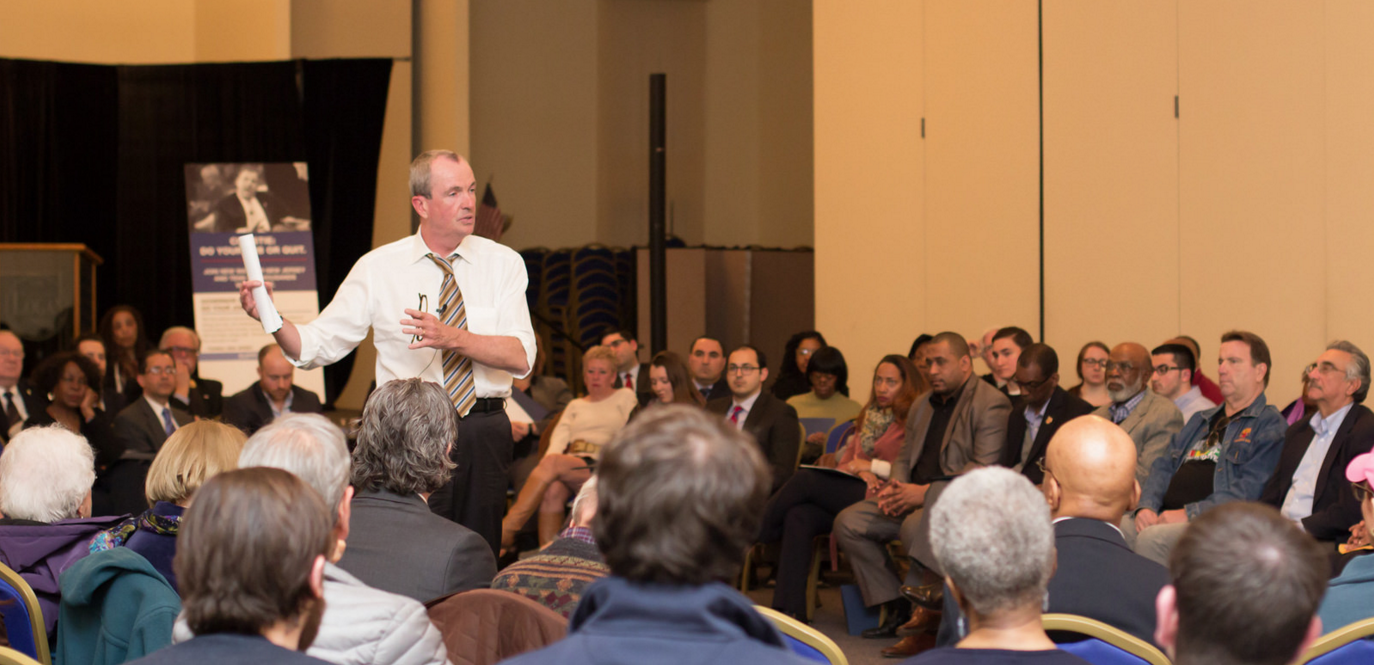
NEW JERSEY—While efforts to legalize recreational marijuana now appear to be delayed—possibly to a ballot question in 2020 or earlier—legislative efforts moved ahead last week in the state Assembly and Senate to expand the medical marijuana program and to reduce criminal penalties for low-level pot possession.
Despite efforts to persuade reluctant Democratic legislators to support legalization—Democrats control both the state Assembly and Senate—Senate President Stephen Sweeney (D-Gloucester) announced May 15 that the bill to legalize recreational marijuana will not be brought to a vote because it lacks a majority needed to pass—at least in the Senate.
A similar effort failed in late March when a Senate Democratic majority could not be corralled, although the bill had enough votes to pass the Assembly.
In May, as in March, key Senate votes from Democrats—including Sen. Ronald Rice—were not on board with legalization, believing it would bring disproportionate harm to minority communities and individuals with marijuana-related criminal records.
Sweeney said it’s likely the issue will be placed on the November 2020 ballot for voters to decide.
Gov. Phil Murphy had pushed strongly for legalization since his election in 2017 and included $60 million in cannabis sales tax revenue in the proposed 2019–2020 state budget.
The apparent fizzling of legislative efforts to approve recreational cannabis was taken in stride—and also welcomed—by Northern Valley and Pascack Valley mayors who previously publicly opposed legalization efforts, noting costs to municipalities such as police enforcement and training for recognizing drug-impaired motorists for not being adequately addressed.
Bergen mayors opposed
At a Bergen County League of Municipalities meeting in April, League President and Alpine Mayor Paul Tomasko polled some 22 county mayors, finding no support among them for recreational marijuana sales or a local retail cannabis shop.
However, there was majority support for medical marijuana, though it was unclear if that indicated support for a local medical marijuana dispensary.
Asked about recent public polls showing 62 percent of residents favor cannabis legalization, Tomasko said he felt that support was “a soft 62 percent” and noted he had not spoken to a single resident who favored cannabis legalization.
“I think they’re doing the right thing by taking more time and additional consideration rather than force it through. None of my [mayor] colleagues are in favor of this and I think that’s right,” he said.
Tomasko said local costs to municipalities will likely be greater than anticipated and emphasized most law enforcement officials still consider marijuana “a gateway drug.”
He added, “Look, as always, the devil’s in the details.”
On May 21, Tenafly’s Borough Council was set to discuss a ban on recreational cannabis sales, a move recommended by the local Planning Board and Board of Health.
Not in favor of legalized marijuana or local cannabis sales, Tenafly Mayor Peter Rustin said he felt “the predicted negative aspects have been minimized and underrated” all along in the state’s rush to legalize cannabis.
Had New Jersey been able to pass legalization legislation, it would have been only the second state to legalize pot by passing a law. Nine of 10 states where marijuana is legal approved it via public referendum. Now New Jersey is moving in that direction, too.
“I’m not surprised that it didn’t get the votes. I don’t believe it’s a good thing for the state overall,” he said.
Rustin said he wasn’t sure whether Tenafly would consider a resolution to prohibit marijuana sales, as the vote to approve recreational pot was delayed until the 2020 ballot.
He said it appeared likely that each municipality that passed an ordinance opposing local cannabis sales would have to redo the ordinance and opt out again should recreational use be made legal.
While he said he had “no problem” with medical marijuana, as it “serves a good purpose,” the possible impacts of recreational marijuana are disparate and dispiriting: impacts such as impaired drivers under the influence, endangering the population, and costing towns tax dollars for additional costs related to administrative services, emergency services, courts and public works.
Rustin noted that the taxes planned for cannabis—at $42 an ounce by New Jersey, plus up to 3% local tax—constitute a “heavy tax. I’d be very surprised if that limits the [illegal] market,” he said, criticizing the large state tax.
He predicted should legalization occur, towns will be hit with unknown and unfunded costs.
Pot’s ‘destructive nature’
Woodcliff Lake Mayor Carlos Rendo said the legalization vote was blocked by Democratic senators who believed that legalization was wrong.
“Some key senators talked about the destructive nature of marijuana. Legislators see that you have to take this one step at a time,” he said.
Rendo said the borough opposed local retail outlets and he was glad to see state legislators working to improve the bill.
However, he said the legalization effort was purely money-motivated and paid less attention to social justice—including expungement and reduced penalties for possession—which caused its problems.
He agreed with letting voters decide the issue by referendum in 2020.
Murphy has said social justice concerns—namely a disproportionate arrest rate for minorities—motivated his effort to legalize marijuana and regulate the now-illegal underground economy in cannabis.
“Now it’s going to go to the voters rather than shoving this down our throats. They have to take this one step at a time. It’s okay for medical use but I just don’t like the idea of recreational marijuana,” Rendo added.
He said an advocate’s argument that the state should take over the illegal market in cannabis, regulate it and tax it to make revenue makes no sense. He previously said reducing taxes and shrinking government makes more sense.
In April, a representative from the State League of Municipalities—a nonprofit advocating for New Jersey’s municipalities—told Bergen County’s mayors that they might consider hosting any of four different types of cannabis enterprises, all of which could contribute a 1% to 3% local excise tax on gross sales to local revenues.
The League takes no position on marijuana legalization, said Michael Cerra, the organization’s deputy executive director.
No adult-use; medical expands
Following Sweeney’s decision to postpone a vote on recreational marijuana, the League turned its attention to legislation to advance possible expansion of medical marijuana and expungement of existing marijuana-related offenses.
On May 23, the Assembly voted, 65–5, to approve medical marijuana program expansion. The bill will more than double the size of New Jersey’s current program and allow the state to start accepting applications for many new providers.
The bill allows physician assistants and nurse practitioners to recommend medical cannabis to patients; allows issuance of separate licenses for medical marijuana growing, processing and selling; and sets up a Cannabis Regulatory Commission to oversee the program, superseding the state Department of Health, which now runs the program.
The Senate vote to expand medical marijuana is set for May 30.
If signed into law, the medical marijuana expansion bill permits patients to purchase up to 3 ounces of cannabis per month—up from 2 ounces—and legalizes edible forms of cannabis.
It also phases out sales tax on medical marijuana by 2025. Both bills for expanding the medical marijuana program and expungement were initially tied together with adult-use legalization.
Both were more popular alone than when they were bundled as a package with the legalization of adult-use recreational marijuana.
Expungement Advances
Assembly and Senate committees cleared a bill that would establish an expedited expungement process for prior marijuana convictions and create an e-filing system for expungement petitions.
If someone has a clean record for a decade, all prior offenses and convictions would be wiped away.
Another bill that would decriminalize possession of up to 2 ounces of cannabis was passed in an Assembly committee.
The bill reclassifies possession of 2 ounces to a pound of marijuana as a disorderly persons offense on first offense, with a maximum sentence of six months in prison and $1,000 fine.
On May 22, Sweeney told reporters he was not yet in favor of any bills to decriminalize marijuana though he did support expungement for prior low-level pot convictions.
Votes were scheduled in the Assembly on both medical marijuana expansion and expungement bills—May 23 in the Assembly and May 30 in the Senate.
The decision to postpone an adult-legalization vote provided immediate impetus to legislators interested in expanding medical marijuana and expungement. An expungement process could expedite erasure of prior marijuana arrests and convictions for about 200,000 New Jerseyans, according to legislative estimates.
Sweeney said he did not foresee the expungement bill taking effect until voters approved a constitutional amendment to legalize cannabis via public referendum in 2020.


